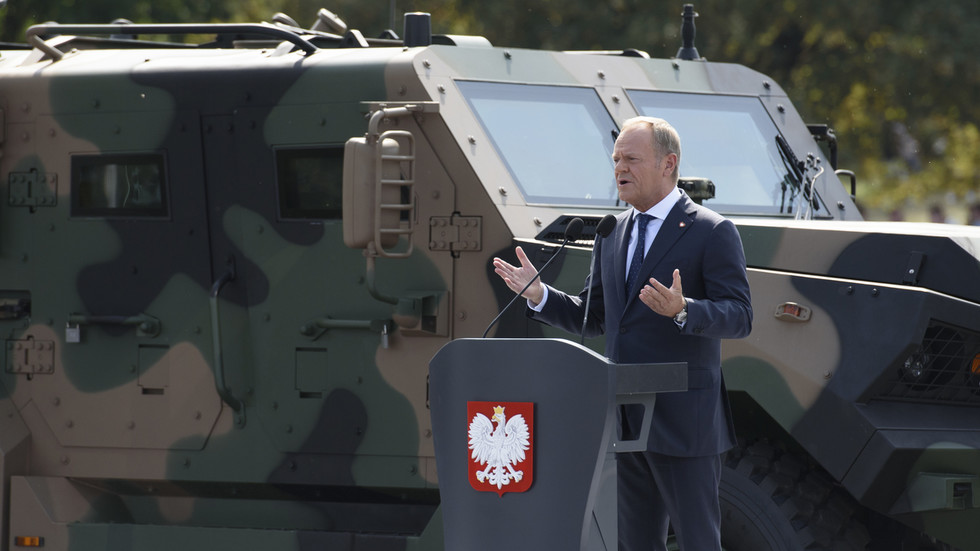In remarks underscoring a pivotal shift in Europe’s approach to its own security, Polish Prime Minister Donald Tusk warned that the era of European countries relying on the United States for their defense is drawing to a close. As the looming November 5 U.S. presidential election approaches, Tusk emphasized that the results—whether a victory for Democratic candidate Kamala Harris or Republican incumbent Donald Trump—should not dictate Europe’s future security strategy. Rather than placing their dependence on U.S. electoral outcomes, Tusk argues that European nations must embrace their autonomy and the responsibility of managing their security affairs. He stresses the importance of the European Union (EU) taking ownership of its geopolitical stance, essentially calling for the bloc to “grow up” and recognize its inherent strengths.
Tusk’s commentary came amid widespread anxiety among Europeans regarding the potential consequences of a Trump victory. Many express concerns that Trump’s foreign policy could disrupt longstanding alliances, particularly in light of NATO’s role and the protective security that the U.S. has historically extended to its European allies. Therefore, the concern is not just about who occupies the Oval Office but the implications of that leadership on transatlantic relations and security structures. The Financial Times reported that a significant number of Europeans lose sleep over the possible implications of a Trump presidency, particularly in the context of maintaining security guarantees in light of ongoing geopolitical tensions.
Conversely, a more favorable sentiment toward Kamala Harris has emerged among many European leaders and citizens alike. Harris’s commitment to NATO and ongoing support for Ukraine has presented her as a more reliable figure to bolster European security. In polling conducted across various European nations, a clear preference for a Harris presidency emerged, with citizens across countries like Spain, France, and Germany expressing that they trust her to prioritize European security. According to survey findings, public confidence in Harris’s approach to foreign policy is evident, with a notable majority favoring her over Trump when it comes to ensuring stability and continuity in European alliances.
The influence of U.S. presidential outcomes on Europe’s security has been a point of contention, drawing a distinction between the reactionary approach often found among European countries and the proactive stance Tusk advocates. EU leaders, such as David McAllister, head of the European Parliament’s Foreign Affairs Committee, acknowledged the need for Europe to prepare for any eventualities arising from the U.S. election results. McAllister remarked that irrespective of the victor, both a Harris and Trump administration would undoubtedly push Europe towards increased self-reliance in defense and security matters, further confirming the shift Tusk has called for.
As the context of international relations grows increasingly complex, Tusk’s argument resonates with a broader sentiment of moving away from dependency on American policy and toward a more assertive European identity in global affairs. He suggests that Europe cannot afford to wait for external validation or support, highlighting the necessity for the EU to take initiative and define its strategic defense parameters. This reflects a growing recognition among European leaders that their security challenges are multifaceted and cannot solely hinge upon the U.S. political landscape.
In summary, the upcoming U.S. presidential election presents an inflection point for European Union states, prompting figures like Donald Tusk to rethink longstanding dynamics regarding security and defense. By promoting a narrative of self-sufficiency and urging EU member states to cultivate their internal strengths, Tusk’s position signals a readiness for Europe to embrace a more autonomous role in global politics, one that is less vulnerable to external fluctuations in leadership and policy from across the Atlantic. The responses from citizens and leaders alike indicate a wider appetite for this transformation, where the future of European security is secured through shared responsibility and collective action rather than external dependency.

